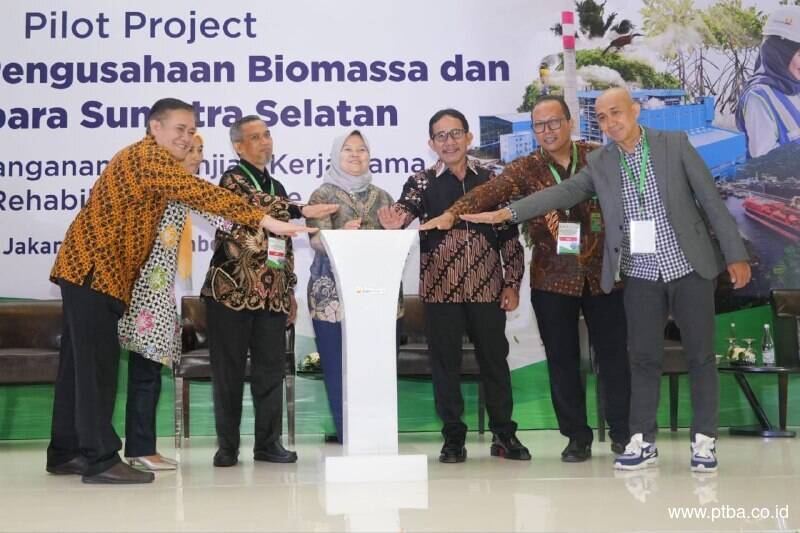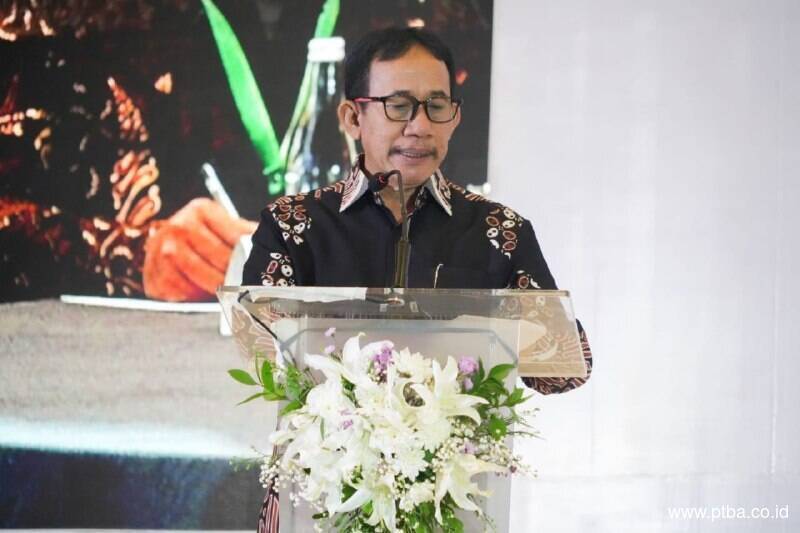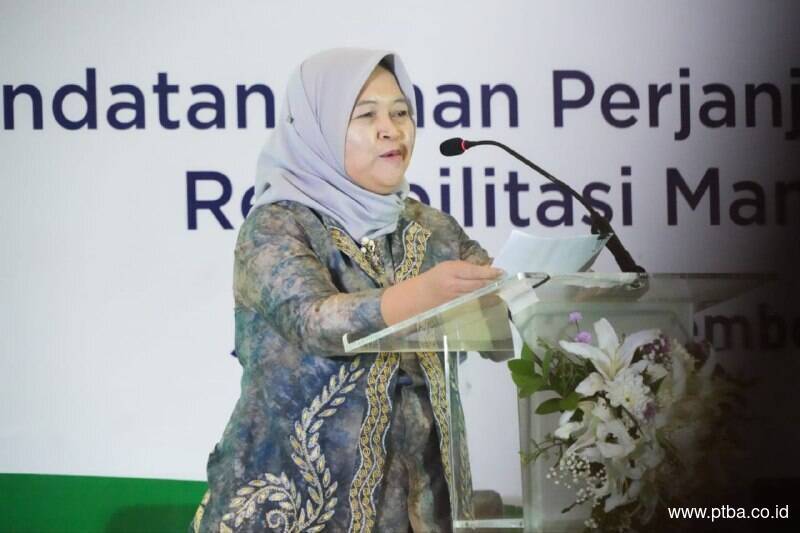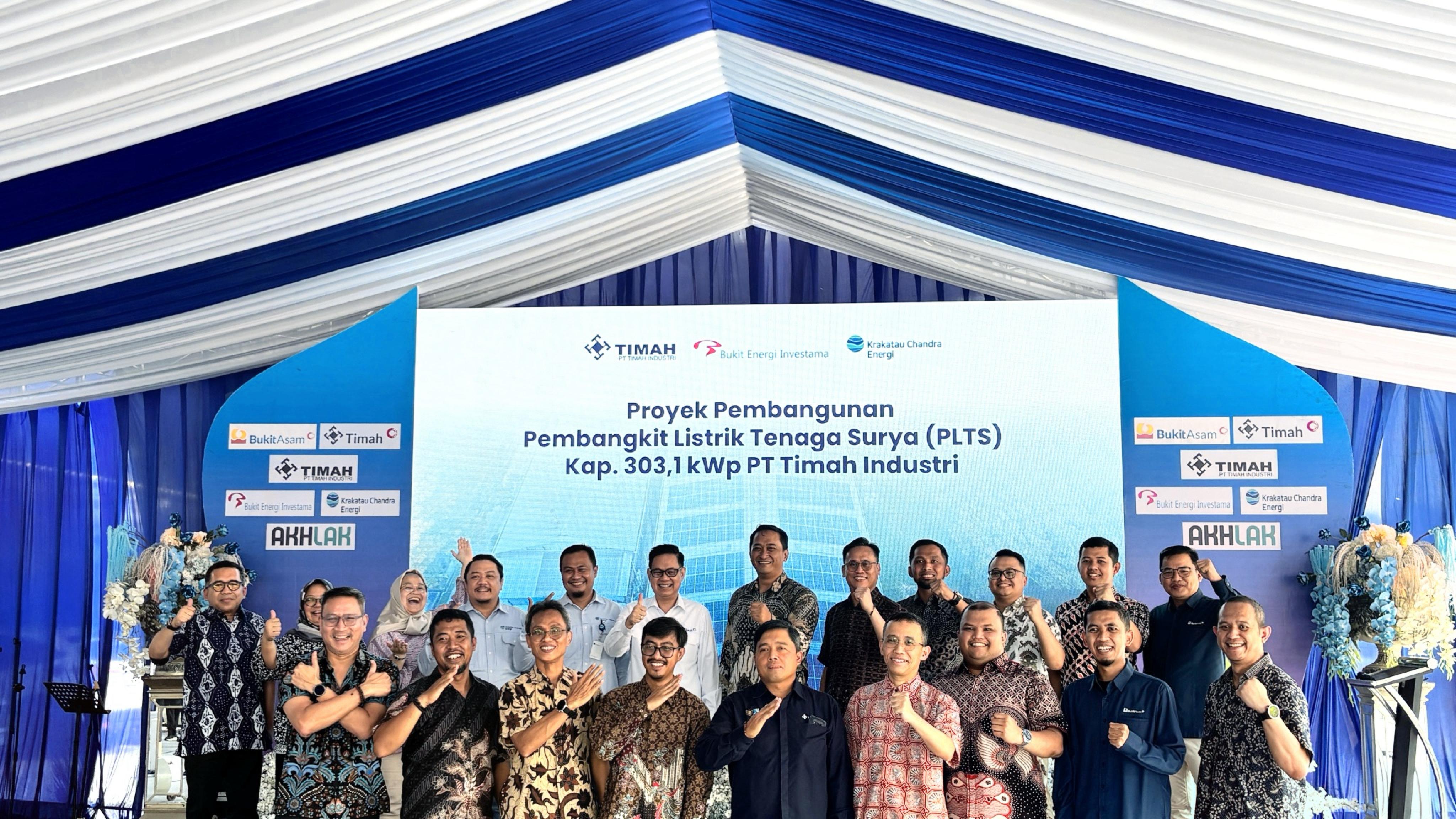PTBA Supports Biomass Development for Cofiring PLTU in South Sumatra
December 22, 2022
This pilot project allows collaboration between the government, BUMN, private sector, academics and associations in developing a policy model in the mining and forestry sectors.
Deputy for Coordination of Environment and Forestry Management of the Coordinating Ministry for Maritime Affairs and Fisheries, Nani Hendiarti, said that the cofiring of the PLTU was a real action in reducing emissions.
"We hope that the implementation of this pilot project can be a model for other mining and forestry companies to collaborate in fulfilling the needs of renewable energy in the domestic and global sectors," said Nani.
She also advised that the biomass production in cofiring PLTU involves the local community so that it will receive community support and ensure its sustainability.
According to PTBA President Director Arsal Ismail, the use of biomass as a fuel to replace coal (cofiring) in PLTU is one of the steps to accelerate the energy transition in order to achieve the Net Zero Emission target in 2060.
"PTBA continues to transform from a coal mining company into a world-class energy and chemical company that cares about the environment. Currently, we are participating in accelerating the energy transition through the Biomass and Coal Business Partnership Program in South Sumatra," he said.
For the initial stage of 1-5 percent, biomass cofiring testing will be carried out at PTBA's Tanjung Enim 3x10 Megawatt (MW) PLTU.
Not only reducing emissions, cofiring is also beneficial from an economic standpoint. Production forests, reclamation lands, unproductive lands, and critical/degraded lands can be used for plants as biomass raw materials.
"This policy model includes the concept of utilizing production forests in a multi-business forestry scheme, using reclamation land, and degraded land to become a renewable energy source in the form of wood-based biomass used as cofiring for coal-fired power plants, adding to the economic value of the land," said Arsal.
Deputy for Coordination of Environment and Forestry Management of the Coordinating Ministry for Maritime Affairs and Fisheries Nani Hendiarti, Director of Bioenergy at the Ministry of Energy and Mineral Resources Edi Wibowo, Director of Processing and Marketing of Forest Products from the Ministry of Environment and Forestry Krisdianto, Assistant Deputy for Climate Change and Disaster Management at the Coordinating Ministry for Energy and Mineral Resources Marves Kus Prisetiahadi, Assistant Deputy for Climate Change and Disaster Management Mining Coordinating Ministry for Marine Affairs and Fisheries Tubagus Nugraha, Director of Utilization of Coastal and Small Islands KKP Muhammad Yusuf, Coordinator of Mineral and Coal Environmental Protection of the Ministry of Energy and Mineral Resources Tyas Nurcahyani, President Director of PT TBP Roy Arman Afandy, Director of Human Resources and General Affairs of PT Pelindo Ihsanuddin Usman, Executive Director of GAPKI Mukti Sardjono, Executive Director of APBI Hendra Sinadia, Commissioner of PT Pelindo Marsetio, Secretary General of APHI Purwadi Soeprihanto, and Chief Executive of APROBI Paulus Tjakrawan attended the event.
Collaboration in Mangrove Rehabilitation
In addition to the biomass development pilot project, PTBA also signed a cooperation agreement with various institutions for Mangrove Rehabilitation Activities as their Corporate Social and Environmental Responsibility.
The cooperation agreement is a follow-up to the Memorandum of Understanding signed on November 17, 2022. This agreement involves the Coordinating Ministry for Marine Affairs and Fisheries, the Ministry of Environment and Forestry, PT Pelabuhan Indonesia (Persero), PTBA, PT Trimegah Bangun Persada (PT TBP), the Indonesian Palm Oil Association (GAPKI), the Association of Indonesian Forest Entrepreneurs (APHI), and the Association of Indonesian Biofuel Producers (APROBI).
"We would like to send our gratitude to the Coordinating Ministry for Maritime Affairs and Fisheries, the Ministry of Environment and Forestry, the Ministry of Maritime Affairs and Fisheries, the Ministry of Energy and Mineral Resources, PT Pelindo, PT TBP, APHI, APBI, APROBI, and GAPKI for partnering and collaborating by signing the National Mangrove Rehabilitation Cooperation Agreement," said Arsal.
The purpose of the agreement is to accelerate the implementation of mangrove rehabilitation as CSR to support the achievement of the national mangrove rehabilitation target.
"I would like to invite you to collaborate effectively and efficiently in accelerating the clean energy transition to achieve of the national mangrove rehabilitation target of 600,000 hectares (ha) in 2024," he said.
Mangrove rehabilitation in 32 provinces in 2021 was 34,912 ha and the target area for mangrove rehabilitation in 2022 was 181,500 ha. Contributions from state-owned and private business groups for forest and mangrove rehabilitation by 2024 are expected to reach at least 100,000 ha.
Mangrove rehabilitation is a national program that is included in the 2020-2024 National Medium-Term Development Plan. This program is one of the pillars in efforts to preserve the environment, empower communities, and to support ecotourism development around the company's operational areas.









